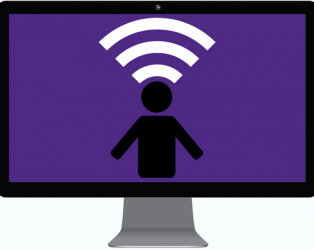Computing Everywhere: Call for One-Time Workshop Proposals
The Computing Everywhere initiative in the Communication Studies department is seeking proposals to offer ‘one-time workshops’ from graduate students in TSB, MTS, Computer Science, Learning Sciences and related fields. These will be specialized workshops (with few a priori constraints) to teach computational skills of any kind to Northwestern undergraduates with little or no technical experience.
One-time workshops need not be part of a series and need not conform to any specific time or curriculum requirements. Some of these will likely be longer-format (i.e., half- or full-day deeper dives on a particular topic) seminars, but innovative proposals for any type of workshop are welcome. While all proposals will be considered, it is generally expected that workshops will be consistent with the Computing Everywhere objectives of being lightweight, broadly accessible, low-pressure and low-risk. Applicants to teach one-time workshops are particularly encouraged to discuss ideas well in advance of submission with Jeremy Birnholtz, the Computing Everywhere faculty coordinator. Former Computing Everywhere instructors are especially encouraged to apply to teach this workshop format.
While there is no explicit threshold for enrollment, workshops that do not draw sufficient interest from students in advance enrollment will not be offered. Compensation for tailored workshops may vary by format and length, but will be roughly commensurate with the rate paid for workshops in the 5-week series (which is $700 per instructor to develop a 2-hour workshop and teach it twice).
Applications for one-time workshops may be submitted at any time and will be reviewed on a rolling basis, but must be submitted at least 7-8 weeks prior to the desired quarter of instruction (i.e., roughly by August 1 for Fall Quarter, November 1 for Winter Quarter and February 1 for Spring Quarter). In some cases, instructors who apply to teach in a particular quarter may be asked to defer to a different quarter.
Who is eligible? All enrolled graduate students in good standing and postdocs at Northwestern are eligible to submit proposals, though proposals from students in TSB, MTS, Computer Science, Learning Sciences and closely related fields will receive priority. Graduate students may apply individually, in pairs, or small groups. Past instructors are strongly encouraged to apply and integrate feedback received on prior workshops, as are past applicants whose proposals were not accepted. Prior to acceptance of any proposal, approval from the instructor’s advisor must be obtained. It is generally expected that no individual applicant will be involved in more than two Computing Everywhere proposals during any academic year, though exceptions are possible.
What’s computational literacy? Exact topics will vary, but the overall goal is for students to be more conversant in computation. Topics could include the role of algorithms in everyday life, elementary programming and computational thinking, how to have conversations with programmers/software engineers, big data, etc. The overall goal is that workshops familiarize students with important computational concepts or ways of approaching problems as a programmer or in working with programmers.
Who will the students be? The intended audience for these workshops are School of Communication students with interests in digital media, user experience and HCI but with very little or no programming/technical experience.
What should be in a proposal? Proposals should be 2-4 pages (no formatting requirements). Successful proposals will articulate a compelling topic area, specify 3-4 specific learning objectives for the workshop and provide a general lesson plan (e.g., how long will the workshop be, how would the workshop be structured, how would time be spent, how would learning objectives be achieved, etc.) for the 2-hour session. For example, detailed plans for a 15-minute exercise are not necessary, but the proposal could indicate a plan to develop or use an existing exercise on a topic. One helpful strategy for this is to break the workshop into 15-30 minute chunks and provide a brief overview of each chunk. Note that workshops may take any form, but hands-on exercises and other forms of direct engagement with content are strongly encouraged.
Your application should indicate any relevant teaching experience or other qualifications that may distinguish you from other applicants. Please also indicate availability and preferences for particular dates/days, but be prepared to discuss these parameters if your proposal is accepted.
Finally, please have your advisor/chair send a brief note of support (separately via email) for your involvement in this. (It can be as simple as “I’m aware that NAME has submitted this proposal and support their involvement.”)
Then what? Proposals will be reviewed in early-to-mid August for Fall Quarter, early-to-mid November for Winter Quarter, and early-to-mid February for Spring Quarter. In some cases, instructors may be asked to revise or combine proposals. Selected instructors should be prepared to submit a detailed lesson plan in before the start of the quarter the workshop is hosted and meet with Jeremy Birnholtz to review and discuss this plan.
What if I have other questions? Talk to past instructors, your peers and/or contact Jeremy Birnholtz.
I’m having trouble getting my head around this. Can you point me to some examples? Yes, of course. Here are the syllabi for the last 3 workshop series, including a list of topics:
* Zero-credit courses appear on student transcripts as satisfactory/unsatisfactory, but do not carry academic credit. Attendance and active participation are required for satisfactory credit.
